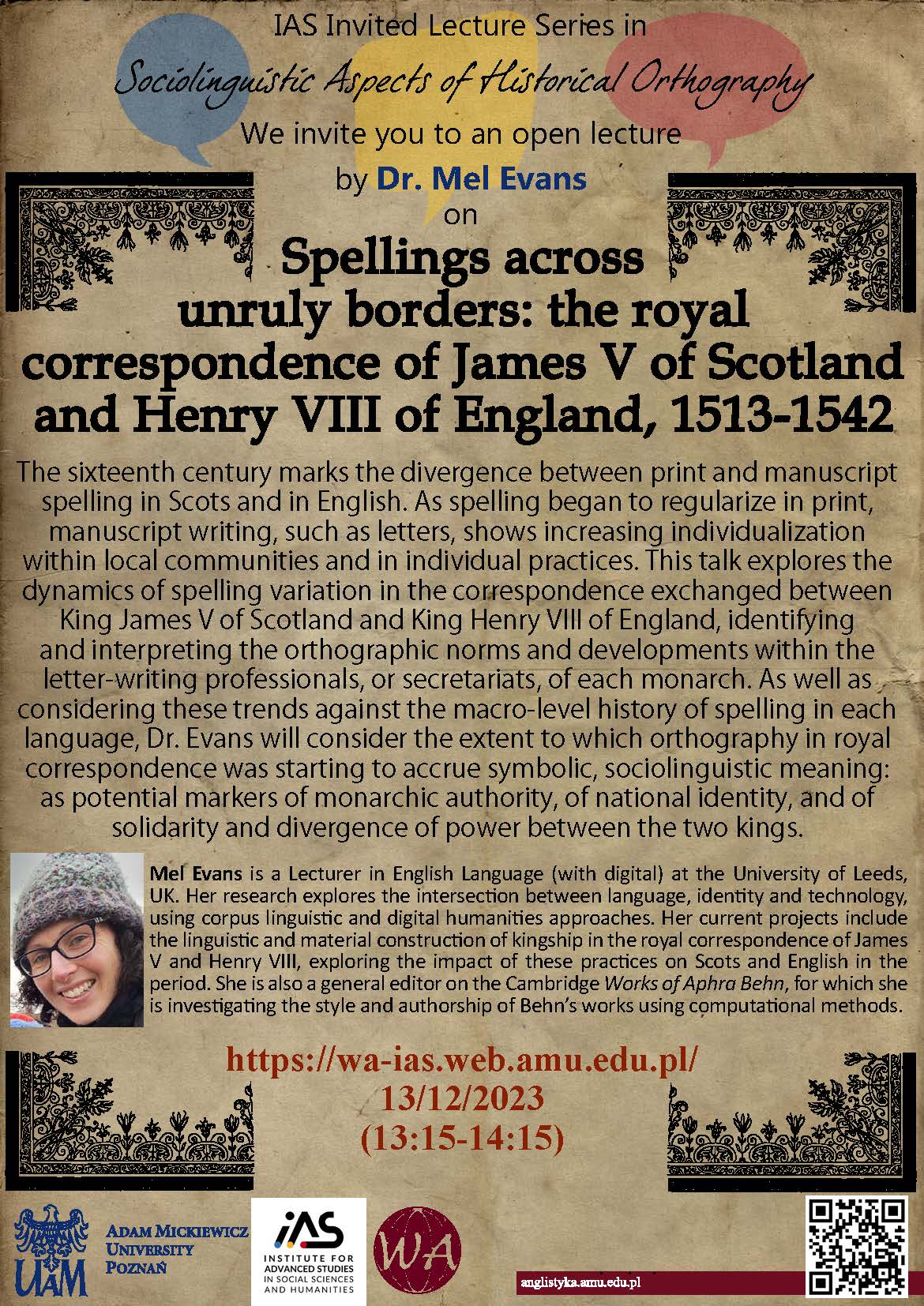The Department of the History of the English Language invites everybody to the second on-line lecture in the series Sociolinguistic Aspects of Historical Orthography, organised within the framework of the AMU Institute of Advances Studies in Social Sciences and Humanities [external link] programme.
On Wednesday 13 December at 1.15 p.m our guest speaker, Dr. Mel Evans (University of Leeds) will talk about “Spelling across unruly borders: The royal correspondence of James V of Scotland and Henry VIII of England, 1513-1542”.
You can join us at IAS Invited Lecture Series schedule and find more information at IAS Invited Lecture Series website. The lecture is open to everyone.
Abstract
The sixteenth century marks the divergence between print and manuscript spelling in Scots and in English. As spelling began to regularize in print manuscript writing, such as letters, shows increasing individualization within local communities and in individual practices. This talk explores the dynamics of spelling variation in the correspondence exchanged between King James V of Scotland and King Henry VIII of England, identifying and interpreting the orthographic norms and developments within the letter-writing professionals, or secretariats, of each monarch. As well as considering these trends against the macro-level history of spelling in each language, Dr. Evans will consider the extent to which orthography in royal correspondence was starting to accrue symbolic, sociolinguistic meaning- as potential markers of monarchic authority, of national identity, and of solidarity and divergence of power between the two kings.

About the speaker
Mel Evans is a Lecturer in English Language (with digital) at the University of Leeds, UK. Her research explores the intersection between language, identity and technology, using corpus linguistic and digital humanities approaches. Her current projects include the linguistic and material construction of kingship in the royal correspondence of James V and Henry VIII, exploring the impact of these practices on Scots and English in the period. She is also a general editor on the Cambridge Works of Aphra Behn, for which she is investigating the style and authorship of Behn's works using computational methods.
